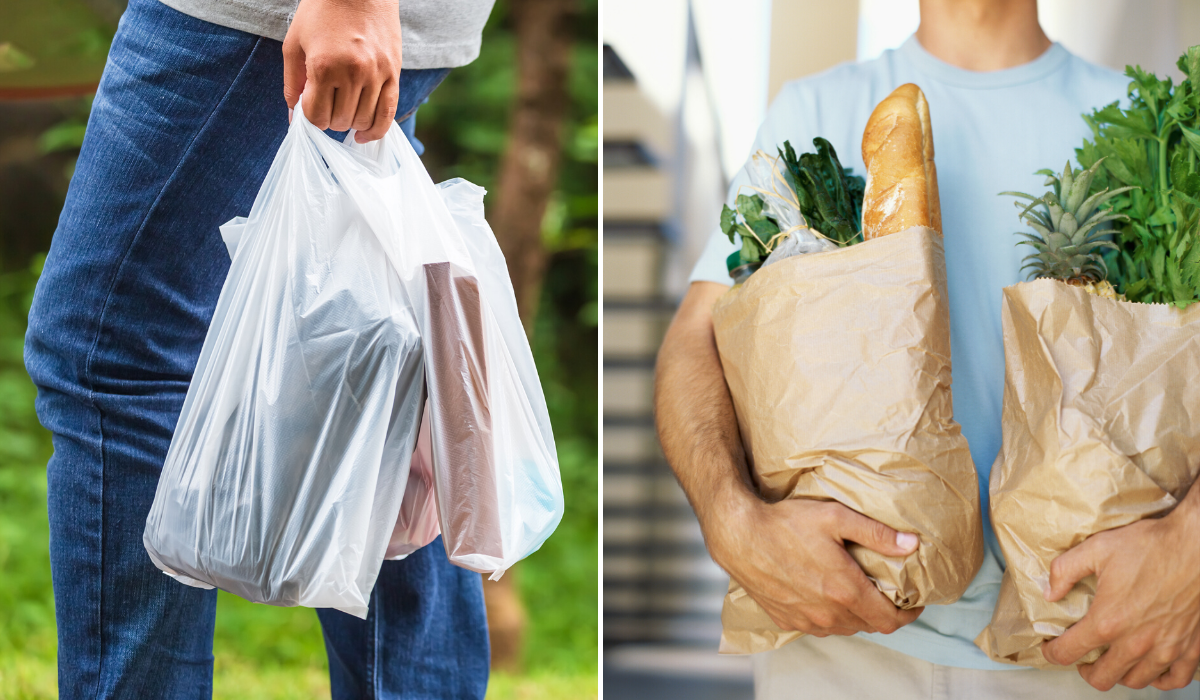New York’s Plastic Bag Ban: Are You Prepared?
The lens of environmental scrutiny has focused itself squarely on single-use plastics as of late, causing state and local governments to take swift action. New York state is no exception and their ban on retailer’s use of single-use plastic bags will go into full effect on March 1, 2020. With the public support behind reduction of the state’s carbon footprint, a large initiative like this plastic bag ban was due. Considering plastic bags don’t biodegrade or break down, can be extremely harmful to wildlife, and cost a tremendous amount to dispose of, it’s easy to see why they’ve become the main focus.
New York’s Plastic Bag Ban Specifics
The two biggest questions about this ban are “who will the legislation affect, and how will it affect them?” The who, technically, is any retailer who is required to collect tax. The how is where things get cloudy due to a list of “exempt bags”. Certain uses will be tolerated for single use plastic bags and the bags used for those uses are deemed exempt for this legislation. The full legislation can be found at this link, but here is a list of what the state of New York has deemed “exempt Bags”:
‘Exempt bag’ means a bag that is:
- Used solely to contain or wrap uncooked meat, fish, seafood, poultry, or other unwrapped food, flower, or plant item;
- Used by a customer solely to package items from bulk containers, including fruits, vegetables, grains, candy, small hardware items (such as nuts, bolts, and screws), live fish, or live insects;
- Used solely to contain food sliced or prepared to order;
- Used solely to contain a newspaper for delivery to a subscriber;
- Sold in bulk quantities to a consumer at the point of sale that were specifically prepackaged in a manner to allow for bulk sale (for example, quantities of bags prepackaged in individual pre-sealed boxes) or prepackaged in individual boxes or containers for sale to a customer;
- Sold as a trash bag;
- Sold as a food storage bag, such as those in snack, sandwich, quart, and gallon sizes;
- Used as a garment bag, such as those used by a dry cleaner or laundry service;
- Provided by a restaurant, tavern, or similar food service establishment, as defined in the state sanitary code, to carry out or deliver food;
- Provided by a pharmacy to carry prescription drugs;
- A reusable bag, as that term is defined in proposed Part 351 draft regulations; or
- A film plastic bag for which there is no reasonable or practical alternative for storing, containing or transporting items, as determined by the department.
Alternatives to Single-Use Plastic Bags
Reusable Bags
The main goal of this legislation is to shift consumers behavior toward the use of reusable bags while shopping. This category specifically refers to non-woven or canvas bags which can be used repeatedly and regularly with little wear and tear. Reusable bags are made in many styles and are also available in insulated models to keep colder items at the desired temperature. These can also be viewed as a marketing tool as your bags will likely end up being used in other stores by the customers you sell them to. Johnston works with several vendors to provide your business a wide range of reusable bag options to offer your customers.
Paper Bags
Paper bags are the single-use alternative to the plastic bags being banned. It would be a stretch to assume all customers will want to switch over to constant use of reusable bags. There also needs to be a solution if customers forget their reusable bags at home. That said, the legislation calls for a $0.05 fee per bag to be charged in most areas of New York state. Paper bags are heavier, and harder to transport and store than plastic. Johnston has made efforts to get ahead of the inevitable demand increase for paper bags by forging more partnerships with reliable paper bag vendors.
How Johnston Can Help
Johnston prides itself on providing exceptional products to suit your needs. Our experts can help you assess your current situation and evaluate the best way to deploy new systems and processes throughout your facilities. Johnston works with many exceptional vendors to deliver quality products, training and service to our customers. In addition, our experts can help identify potential problem areas in your processes and help you to improve them through training, reinforcement and proper product selection. Our team even offers laundry and warewash services as well as preventative maintenance programs where an expert from our team will check on your fleet regularly, keep it in great working order and inform you of any necessary maintenance or repairs. Contact a Johnston expert today to get started.
About Johnston
Johnston has always stood for reliability, commitment, quality, and service. Our heritage means years of accumulated industry knowledge, the ability to see the bigger picture, and the know-how to determine the best possible approach. Combining this mastery with the drive to deliver exceptional results, Johnston goes beyond sales, developing strategic, end-to-end tailored solutions for each customer since 1881.



